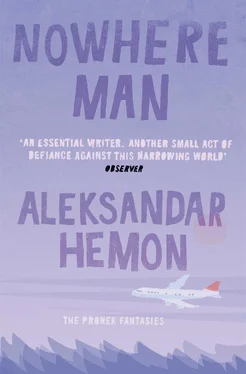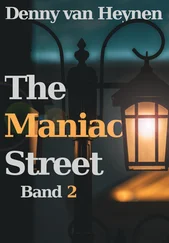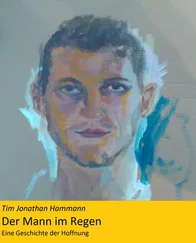When I woke up the next morning, Jozef was still in bed, hence I pretended to sleep, so as to eschew the awkwardness of waking in a room with a stranger. I heard him straightening up in his bed, scratching (his chest? his thighs?) with such unfaltering vigor that I suspected masturbation for a moment. Then he rummaged through his stuff, closing the door, then leaving — his steps echoing in the hallway. I got up with a heavy steel ball in my belly — the regular morning meaninglessness of everything when all the uses of this world seem weary, stale, flat, and unprofitable. I unpacked my stuff, hung up my shirts next to my roommate’s. The color of his shirts was predominantly Eastern European bleak, and the sneakers at the bottom of the closet were well worn, so I was self-conscious putting my attire next to his: my sandals, my sneakers, my shoes, and a lavish collection of khakis and colorful shorts in need of ironing. For an instant, I could not remember why I had them all: the arbitrariness of those choices appeared abruptly transparent, and all the other choices I had ever made seemed absurd. I liked (and still do) the smell of his clothes — the musty smell of a lived life.
When my roommate walked back in, I was sitting on the bed with my head in my hands, looking at my toenails in dire need of truncation.
“Good morning,” he said earnestly, which forced me into replying.
“How are you?” he asked. I was pretty tired.
“You want one coffee?” he asked. “Bosnian.” Sure, I said.
“You Americans always say sure,” he said. I didn’t see the point of arguing, so I said sure, and he chortled.
My name was Victor. “I know,” he said. He put a little pot with a long handle on the table between our beds. He dipped what seemed to be two razors attached to a wire, with a button between them, in the pot, then plugged the bare ends of the wire into a socket. I calmly realized that he was risking his life, along with my mental welfare, by doing that.
“I know this from army.” You were in the army? Whose army?
“Yugoslav. We must go. It was many years ago, when I was eighteen.” How old are you now?
“Twenty-four,” he said.
He had a rotund nose, which seemed swollen, and thick meaty lips, which he kept open. He had the darkest eyes I have ever seen, like two perfect marbles. We sipped coffee, too bitter and biting — I furtively abandoned it. The birds just outside the window warbled, and someone in the room above ours was apparently tap-dancing. He was from Sarajevo, Yugoslavia. He used to have a band and write for papers. His father was Ukrainian, just like mine, though his was born in Bosnia. He came to Ukraine to see his grandfather’s fatherland, but he also wanted to be away for a little while from “crazy things” in Yugoslavia. He had this idea they (who were they?) put things in your head and that you have to make it empty. I had stomach cramps and needed to go to the bathroom.
“We must go and eat breakfast,” he said. “I wait for you.”
Sure.
It was while spending time in Eastern Europe that I learned to appreciate unremarkable things, and the cafeteria I entered, following Jozef, occasionally bumping into him (our steps had not yet synchronized), was spectacularly unremarkable. The light in it was gray; a window wall looked out at a parking lot, which had no cars other than a gigantic black Volga, like a beached walrus. On one of the walls there were men leaning forward with fiery eyes and mountainous muscles bulging under their work uniforms. The women in folk uniforms facing them off hugged tall stalks of wheat that used to be golden and now were merely washed-yellow There was a long line of people sliding their screeching trays down a rail, toward the food. Some of them were foreigners, recognizable in their clean, crumpled clothes, glancing around, trying to figure out where they might be. We took our trays and they were sticky, still wet in the corners, reeking of socialist grease.
I piled different sorts of blebby pierogi and a cup of limpid tea on my tray. The young woman in front of us, with arms that were bones coated with skin — Jozef introduced her as Vivian — put on her tray one pierogi, which looked like a severed, ashen ear. I lost my appetite instantly. I sat across from Jozef and he munched his pierogi, while I sipped the absolutely tasteless tea.
“What are you doing?” he asked me, looking straight into my eyes.
“I am drinking my tea,” I said, suddenly perplexed as to what it was that I really might be doing.
“No, in your life.”
“Oh,” I said. “In my life.” My life. Ripeness is all, and I ain’t got it. “I am writing a Ph.D. thesis.”
“I see. What are you studying?” Let it be made clear, I did not want to have that conversation. I did not want it to be known that I was not doing what I claimed I was doing.
“Shakespeare,” I said.
“What about Shakespeare?” He was an unrelenting bastard, looking straight at me all along. Look away, you knave, look at the men with fiery eyes, look at Vivian nibbling her pierogi, preparing herself for a bout of bulimia. “What is called your thesis?”
I must have blushed. I sat there facing a Jozef from a crumbling country, up to my neck in fucking Kiev. I said: “Queer Lear.” I was about to say: “The Collapse and Transformation of Performative Masculinity in King Lear,” but Jozef said:
“My little horse he thinks it is queer, that there is no house near.”
“Not quite queer in that sense,” I said. It occurred to me that what I was doing was inapplicable , that I could spend days explaining it to Jozef to no avail, under the forlorn mural, the world’s fresh ornament. I used the opportunity to change the subject. “You like Robert Frost?”
“I was reading him on faculty,” he said. “I am also studying litrch — litrchoo — I am studying books.”
It was as he was fumbling the word literature that I befriended him. It was painful for me too to utter that word, and I grinned in warm understanding, wanting to hug him like a stack of wheat. Even now, when I teach, when I am forced to utter the world “literature,” I have a strange sensation — my nipples tickle, my eyes well up with tears.
There was a time, I freely confess, when I thought it noble not to know where one was heading. I thought that being lost meant being in mid-chapters of one’s own Bildungsroman, but then I became very lonesome climbing up the steep, craggy cliff of self-knowledge. I kept reading and thinking, and thinking and reading, and drinking, in order to figure out what life was all about, and whose fault it all was, before I even started living. Then I went to graduate school. I learned that desire was important, in a class populated by lonely, insecure searchers who sought people like themselves in literature written centuries ago. (The teacher’s claim to academic fame was entitled “Karaoke and (Re) Presentation.”) My father once asked me what I desired in life, and I was happy he used the word desired , for by that time I considered myself an expert on the matter. My father was the kind of man who fixed old chairs and obsolete magnetophones, thereby restoring the original order — no search, just restoration. Anyway, I followed the path of desire, but it led me nowhere, and I roamed and wandered, and became a typical American young existential tourist — Jack Kerouac was my travel agent. And for reasons I could not fully understand at that time, I had a terrifying feeling that sitting in front of Jozef, answering questions he had no right to ask, I had reached the terminus.
“You want to eat that?” Jozef asked, and pointed at the remains of my sorry breakfast.
“No,” I said.
“Can I eat that?”
“Sure.”
Читать дальше












